“Nurses eat their young, you know?”
This was the rationale and comfort provided to me when I first sought mentorship from a senior nurse about the poor treatment I was receiving from my nursing peers as a new nurse. I was a victim of nurse bullying, and the solution that was suggested to me was to endure it. It was just a part of the hazing process of new nurses. “This too shall pass,” after all. Like so many nurses who came before me, I was expected to endure poor treatment simply because that’s the way it’s always been.
I disagreed and began sharing resources and materials to help nurses address the distressing instances of lateral violence that plague the nursing profession so that one day, we might have a bully-free nursing future.
This article will delve into the complex issue of nurse bullying, also known as lateral violence, within the nursing profession. We will explore its prevalence, causes, and profound effects on individuals and the healthcare system. Through personal narratives, expert insights, and actionable strategies, we aim to shed light on this pressing concern, empower nurses to confront bullying situations, and advocate for a more respectful and supportive workplace culture in healthcare.
- Understanding Nurse Bullying
- Personal Experiences, Case Studies, and Examples
- Causes and Contributing Factors
- Effects of Bullying on Nurses and the Profession
- Why Don't They Teach Nursing Students About Nurse Bullying?
- Nurse Bullying Resources & Support Systems
- Actionable Advice and Preventative Strategies
- Community Engagement and Discussions
- Putting it All Together
Understanding Nurse Bullying
Nurse bullying, often referred to as lateral violence or horizontal hostility, is a disturbing phenomenon within the healthcare sector. It encompasses a range of behaviors, from overt aggression to subtle forms of intimidation among nursing staff. Historically, this issue has been shrouded in silence, with early instances likely underreported due to healthcare institutions’ hierarchical and traditionally authoritative structure.
The issue’s evolution has seen increased awareness and research, shedding light on its prevalence and impact. Studies indicate that a significant proportion of nurses have experienced bullying at some point in their careers. This is not just a problem for individuals; it resonates throughout the healthcare system, affecting team dynamics, patient care, and staff retention rates.
The impact of nurse bullying is profound, leading to emotional distress, decreased job satisfaction, and in some cases, nurses leaving the profession. It also has a ripple effect on patient care, as bullied nurses may be less engaged or able to perform at their best. The acknowledgment of nurse bullying as a critical issue in healthcare has led to the development of policies and strategies to create healthier, more supportive work environments.
Various Terms Describing Bullying in the Nursing Profession
The phenomenon of nurse bullying takes many forms and goes by many names. While the severity and complexity of the terms below may vary, they all describe some nurse bullying or hostile work environment.
- Lateral Violence
- Horizontal Hostility
- Workplace Hostility
- Nurse Bullying
- Nurses Eating Their Young
- Interpersonal Aggression
- Professional Incivility
- Workplace Harassment
- Occupational Bullying
- Peer-to-Peer Abuse
- Psychosocial Hazard
- Toxic Nursing Environment
Personal Experiences, Case Studies, and Examples
Addressing bullying in nursing is thus crucial for the well-being of individual nurses but also for the overall health of the healthcare system.
Nurse bullying is not just a theoretical issue; it’s a real problem with tangible impacts. It’s possible you have experienced lateral violence but don’t know what to call it. Some examples outlining ways nurse bullies attack can be helpful to ensure you’re not gaslighting yourself about your experience. This critical contemporary issue in nursing manifests in various forms, as depicted through personal experiences and case studies:
- Initial Shock and Isolation: Fresh out of nursing school, I faced an unexpected and harsh reality. Instead of finding a supportive team, I encountered isolation and hostility from my colleagues. This hampered my professional growth and deeply impacted my mental well-being.
- Social Exclusion: A fellow nurse, newly qualified, faced deliberate social exclusion. This isolation by colleagues during critical times like lunch breaks led to feelings of alienation and professional inadequacy.
- Information Withholding: In another instance, critical information was intentionally withheld from a new team member. Such sabotage compromises patient care and undermines the nurse’s confidence and credibility.
- Inaction from Management: A common thread in these experiences is the lack of support from management. Complaints about bullying behaviors are often dismissed or ignored, further entrenching the problem and contributing to a culture of silence and fear.
- Escalation to Threats: Extreme cases involve outright threats and professional sabotage. For standing up against bullying, nurses have faced punitive actions, such as shift changes, loss of benefits, and public humiliation.
Nurses Eat Their Young
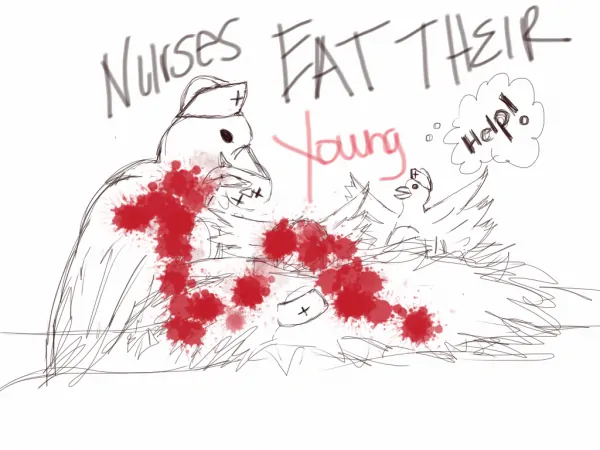
I was just out of nursing school and didn’t have any resources to help me with my bullies.
It started with just one nurse. That nurse made it her goal to turn others against me. She would call me stupid in front of doctors, go behind me, and look through my charts to locate mistakes, and she even tried to get my patients to say I was doing a bad job. Then she was able to get the other nurses in on it. I learned all too quickly the truth in the statement that nurses eat their young.
I was learning why 60% of nurses quit their first job within the first year. Lateral violence was very real! However, I was stubborn. I was going to stick it out, and I endured the torture for several years.
I did try to better my situation. I documented everything, including every comment, insult, and every threat. I followed the chain of command and also documented those conversations.
Lateral Violence is Personal
These personal stories illustrate the multi-faceted and severe impact of nurse bullying, underscoring the need for effective interventions and a supportive workplace culture.
The Hardest Lunch Break I’ve Ever Taken
Everyone has a story of their defining moment when they realize just how bad their bullying has become. Mine came while taking a much-needed lunch break. It was common for the main bully and her friends to go to lunch first. I would have to wait until they all returned before taking my lunch break.
One day, I was ready to take my lunch break before anyone else, so I went. I was sitting in the break room with two tables. The other nurses would file in one by one to take their break. One by one, they all sat at the other table until it was full. Eventually, a fifth nurse walked in, grabbed a chair from the table I was at, and pushed it over to the other table. The five of them ate together, leaving me to eat alone. This was the moment I realized they had all turned against me.
This spoke volumes and was one of the hardest things I have ever endured as a nurse. In the end, I was forced out of my job.
Causes and Contributing Factors
Nurse bullying is a complex issue influenced by various factors:
- Hierarchical Structures: Traditional hierarchies in healthcare often create power imbalances. Senior staff may exert their authority over juniors, leading to bullying behaviors.
- High-Stress Environments: The demanding nature of nursing, with long hours and emotional strain, can contribute to stress-induced bullying. When under pressure, some individuals may inadvertently or deliberately take out their stress on colleagues.
- Psychological Factors: Individual personality traits and past experiences can influence bullying behavior. For instance, a person who has experienced bullying might become a bully themselves.
- Organizational Culture: A workplace culture that tolerates or overlooks aggressive behavior can foster bullying. If there are no clear policies against bullying or if such policies are not enforced, it creates an environment where bullying can thrive.
- Lack of Training and Awareness: Inadequate training on interpersonal communication and conflict resolution can contribute to bullying. Without the necessary skills to navigate complex interactions, some nurses might resort to bullying.
- Competitive Work Environment: In some cases, the competitive nature of advancement in the nursing field can lead to bullying, as individuals may try to undermine each other to gain an advantage.
Understanding these factors is crucial in addressing and preventing nurse bullying, pointing towards the need for comprehensive strategies that encompass policy changes, education, and cultural shifts within healthcare institutions.
Effects of Bullying on Nurses and the Profession
Bullying in nursing has far-reaching consequences:
- Emotional Impact on Individuals: Victims of bullying often experience stress, anxiety, and depression. This emotional toll can lead to burnout, reduced job satisfaction, and in severe cases, PTSD.
- Professional Consequences: Bullying can hinder professional growth, leading to decreased productivity and engagement. It may also cause some nurses to leave the profession, contributing to staffing shortages.
- Impact on Patient Care: The stress and distraction caused by bullying can impair a nurse’s ability to provide optimal patient care, potentially leading to errors and compromised patient safety.
- Effect on the Nursing Profession: Persistent bullying can tarnish the profession’s image, making it less attractive to potential recruits. It also undermines teamwork and collaboration, essential components of effective healthcare delivery.
Strategies for Individuals and Institutions
Strategies for Individuals Facing Bullying:
- Document Incidents: Keep a record of bullying incidents, including dates, times, and witnesses.
- Seek Support: Utilize available support systems, such as counseling services or peer support groups.
- Assertive Communication: Develop skills in assertive communication to address bullying behavior directly and professionally.
- Know Your Rights: Familiarize yourself with workplace policies and legal protections against harassment.
Institutional Strategies to Prevent Bullying:
- Clear Anti-Bullying Policies: Establish and enforce clear policies against workplace bullying.
- Training Programs: Implement regular training for staff on recognizing and addressing bullying, emphasizing communication and conflict resolution skills.
- Reporting Mechanisms: Create safe and confidential channels for reporting bullying incidents.
- Cultural Change: Foster a workplace culture that values respect, diversity, and teamwork.
Legal and Ethical Considerations:
- Adherence to Labor Laws: Ensure institutional policies comply with national and state labor laws regarding workplace harassment.
- Ethical Standards: Uphold ethical standards in nursing, which emphasize respect, dignity, and fairness in the workplace.
- Zero-Tolerance Policy: Implement a zero-tolerance approach to bullying, ensuring prompt and appropriate action against such behaviors.
Nurses eat their young. If you’re a nurse and haven’t experienced bullying, you likely know someone who has. When I speak about social media and talk about how my bullying experience lead me to find community and connections with nurses online, I always have nurses who approach me after my talk to confide in me their bullying experiences. This happens without fail. I am thankful to make connections with my audience, but it saddens me that this is often the area that sparks a deeper connection.
Why Don’t They Teach Nursing Students About Nurse Bullying?
No one talked about nurse bullying in nursing school. When I did learn this was a common phenomena, I couldn’t believe that this caring profession would create such hostile work environments. To this day, I still struggle to answer the question: Why do nurses eat their young?
Graduating from nursing school and taking your NCLEX are huge milestones that are also stressful events. Then you finally make it and are actually excited to start your career. I remember being excited to work, eager to learn, and ready to put my newly learned skills to use. And then suddenly because I asked one simple question, I became the target of a nurse bully.
I have often questioned why there is not a class in nursing school to teach us how to combat lateral violence, to address this ever-present phenomena of nurses eating their young, and to teach us how to identify and stop nurse bullies. This is a very real occurrence, and even though most of us weren’t taught about it in nursing school, there are other resources available to us.
Nurse Bullying Resources & Support Systems
Nurse bullying is an alarming issue that affects the well-being and job satisfaction of healthcare professionals across the globe. Addressing this problem requires a multifaceted approach that combines awareness, education, and support systems. Here, we provide a list of resources and support systems that nurses, both victims, and witnesses of bullying can turn to for guidance, information, and assistance.
Books
Scholarly Articles
- “Nurse Bullying: Impact on Nurses’ Health” by Penny A Sauer and Thomas P McCoy
- “Workplace Bullying in Nursing: A Problem That Can’t Be Ignored” by John S Murray
- “Our Own Worst Enemies: The Nurse Bullying Epidemic” by Cole Edmonson and Caroline Zelonka
- “Workplace Bullying Among Nurses: Developing a Model for Intervention” by Judith E Arnetz, Laurie Fitzpatrick, Shelia R Cotten, Christine Jodoin, and Chu-Hsiang Daisy Chang
Websites and Organizations
- American Nurses Association (ANA): The ANA offers resources and support for nurses facing bullying issues, including guidelines on addressing workplace violence.
- National Nurses United (NNU): NNU is a professional organization that advocates for nurses’ rights and offers resources on workplace bullying and safety.
- Nurse.com: Nurse.com provides articles, webinars, and other educational resources to help nurses combat bullying and create a positive work environment.
Support Groups
- Nurse Bullying Support Group on Facebook: This online community offers a safe space for nurses to share their experiences and seek support from others who have faced similar challenges.
Professional Counseling Services and Legal Resources
- Employee Assistance Programs (EAPs): EAPs are often available through employers and can connect nurses with confidential counseling services to address the emotional toll of bullying.
- Legal resources vary by location, but nurses who believe they have been subjected to unlawful workplace harassment or discrimination should consider consulting an employment attorney or contacting their local labor board for guidance.
Addressing nurse bullying is crucial for the well-being of both healthcare professionals and the quality of patient care. These resources and support systems offer valuable assistance and guidance for nurses navigating the challenges of a hostile work environment. By raising awareness and seeking help when needed, nurses can contribute to a healthier and more respectful workplace culture.
Actionable Advice and Preventative Strategies
Addressing nurse bullying necessitates a proactive approach that combines strategies for dealing with bullying situations and creating a supportive work environment. Here, we offer actionable advice and preventative strategies to empower both individuals and healthcare organizations in combatting this pervasive issue.
Tips for Dealing with Bullying Situations
- Speak Up: Don’t suffer in silence if you witness or experience bullying. It’s essential to report the incident to your supervisor, manager, or HR department as per your organization’s policies. Encourage your colleagues to do the same, as collective reporting can lead to more effective interventions.
- Document Incidents: Keep a detailed record of bullying incidents, including dates, times, locations, individuals involved, and descriptions of the behavior. This documentation can be invaluable when discussing the issue with superiors or in potential legal proceedings.
- Seek Support: Reach out to colleagues, friends, or family members to share your experiences and emotions. Supportive individuals can provide emotional solace and practical advice.
- Know Your Rights: Familiarize yourself with labor laws and workplace policies related to bullying and harassment in your jurisdiction. Understanding your rights can empower you to advocate for yourself effectively.
- Utilize Employee Assistance Programs (EAPs): Many organizations offer EAPs that provide confidential counseling services. These programs can be beneficial for managing stress and emotional well-being in the face of workplace bullying.
Techniques for Creating a Supportive Work Environment
- Education and Training: Implement comprehensive anti-bullying training programs for all staff members, emphasizing respectful communication, conflict resolution, and the detrimental effects of bullying on both individuals and patient care.
- Establish Clear Policies: Develop and enforce explicit anti-bullying policies within the organization. Ensure that employees are aware of these policies and the consequences of violating them.
- Promote Open Communication: Encourage open dialogue among staff members, fostering an environment where concerns and grievances can be raised without fear of retaliation. Anonymous reporting mechanisms can also be beneficial.
- Leadership Accountability: Hold leaders and supervisors accountable for addressing bullying incidents promptly and effectively. Leading by example and demonstrating a commitment to a respectful workplace culture is crucial.
- Supportive Resources: Offer access to resources such as counseling services, conflict resolution training, and stress management programs to help employees constructively cope with workplace stress and interpersonal conflicts.
- Regular Surveys and Feedback: Conduct anonymous surveys to gauge the prevalence of bullying and employee satisfaction with the workplace environment. Use the feedback to make continuous improvements.
- Celebrate Positivity: Recognize and celebrate positive behavior and teamwork within the organization. Highlighting and rewarding respectful and supportive actions can reinforce the desired workplace culture.
Addressing nurse bullying is an ongoing process that requires a collective effort from individuals, colleagues, and healthcare organizations. By implementing these actionable strategies and preventative measures, we can work toward fostering a more respectful and supportive work environment, ultimately benefiting nurses’ well-being and patient care quality.
Community Engagement and Discussions
Nurse bullying is a pervasive issue that affects healthcare professionals across the globe, and fostering a sense of community engagement and open discussion is vital in addressing this problem. In this section, we issue a call-to-action for readers to actively participate in sharing their experiences and solutions, emphasizing the importance of building a supportive community among nurses.
Call-to-Action for Readers to Share Experiences and Solutions
- Share Your Story: We encourage nurses to come forward and share their experiences with nurse bullying. By sharing your story, you not only empower yourself but also provide comfort and solidarity to others who may be facing similar challenges.
- Offer Solutions: Do you have insights, strategies, or solutions that have helped you combat nurse bullying or create a more respectful work environment? Share them! Your ideas may inspire positive change in the lives of fellow nurses.
- Participate in Discussions: Engage in discussions about nurse bullying within your workplace, professional organizations, or online forums. The more we talk about this issue, the closer we come to finding effective solutions.
- Support Others: If you witness bullying or notice a colleague struggling with the effects of bullying, offer your support. Sometimes, a simple conversation can make a world of difference to someone in need.
Encourage a Supportive Community Among Nurses
- Online Communities: Explore online platforms and forums dedicated to nursing, where you can connect with fellow nurses and share your experiences. These communities often serve as safe spaces for discussion and support.
- Professional Organizations: Join or become active in professional nursing organizations that prioritize workplace respect and support. These organizations often provide resources, networking opportunities, and a sense of belonging.
- Peer Mentoring: Consider participating in or initiating a peer mentoring program within your workplace. Mentoring relationships can provide guidance, emotional support, and a listening ear.
- Advocacy Groups: Support or get involved with nurse advocacy groups that work to combat nurse bullying and improve workplace conditions. These groups can amplify your voice and efforts.
- Education and Awareness: Stay informed about the latest developments and research on nurse bullying by attending seminars, webinars, and conferences. Being well-informed allows you to contribute more effectively to discussions and solutions.
In conclusion, addressing nurse bullying requires the collective efforts of nurses, healthcare organizations, and the wider community. By actively engaging in discussions, sharing experiences, and offering support and solutions, we can create a nurturing and empowered community of nurses dedicated to promoting respectful and positive workplace environments. Together, we can significantly impact the well-being and professional satisfaction of nurses everywhere.
Putting it All Together
In our exploration of how nurses eat their young -and how you can stop being a victim of nurse bullying and lateral violence we’ve covered crucial aspects:
- Understanding Nurse Bullying: Defining it, its historical context, prevalence, and impact.
- Personal Experiences and Causes: Sharing stories and identifying contributing factors.
- Effects on Nurses and the Profession: Examining the consequences on individuals and patient care.
- Strategies for Individuals and Institutions: Offering practical advice, institutional policies, and ethical considerations.
- Empowerment and Advocacy: Stressing the role of self-advocacy, leadership, and community support.
- Community Engagement: Encouraging readers to share and build a supportive community.
Reiterating the Importance: Nurse bullying is a serious issue affecting well-being and patient care. Addressing it is vital.
Offering Hope: Through unity, sharing, and advocacy, we can transform nursing into a culture of respect and compassion. Together, we can create a brighter future for nursing.
Download Nurse Bingo Today!
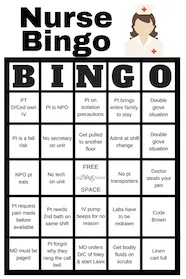
Liven up any shift with a fun game of bingo. See who can fill a row first!
Fill a whole card and lose grip with reality.
Your privacy is protected. We will never spam you.


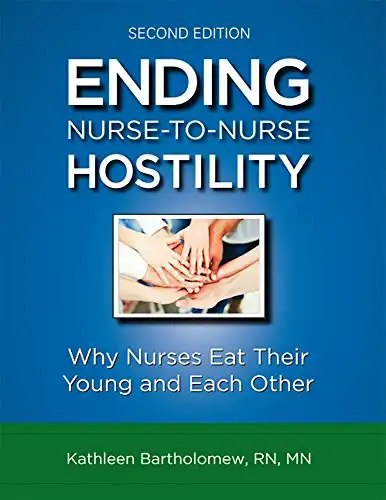
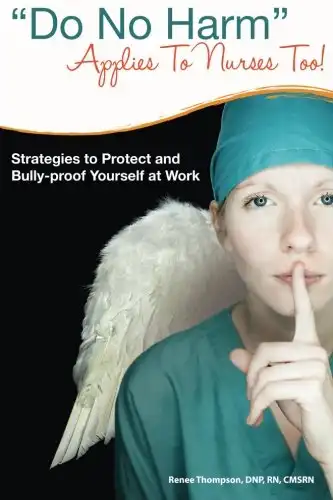
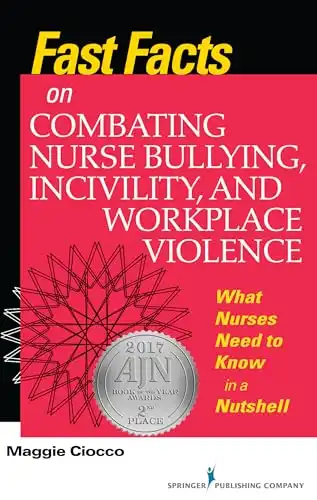







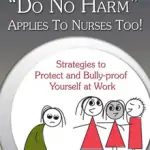

Hi. I was bullied by two nurses at my first nursing job and what astounded me was one was the head nurse on our floor that precepted me during school and the other was someone that went to nursing school with me. I kept all the written stuff they left for me and got statements from coworkers that saw the signs put on my back and some of the “love notes” that were left for me. I took all of this to the vice president of HR and the head nurse of the hospital and they did NOTHING!!! I had anxiety and depression so bad I took time off work and found another job. To this day I cannot go to that hospital without having really bad anxiety. I thought that job was going to be the one for me and they wrecked it! I wish they would have told us in nursing school how to handle bullies!! Not doing so is an injustice to ALL nurses!!
How is that not a lawsuit against the hospital since HR did not address the issue? If they did address the issue then that’s a different story. If the VP of HR didn’t do anything you got a case, I would seek legal advise, you can sue especially if you got documentation and statements from co-workers. My husband is the head of HR for a large company and I’m a nurse. Just letting you know you have rights.
Bullying is real! I think now that people (even an NIH article surfaced) are starting to talk about the issue and bring it into the light for perhaps the first time, it has a real chance of being minimized. We didn’t talk too much about this when I went through nursing school. We were also given a lot of toxic advise. I didn’t make it through nursing school because of bullying by a nursing faculty, who did actually turn some of the other nurses against me. The few who vouched for me, were not heard or no longer teach there.
I guess no one thinks they are a bad person and has their rationalizations; the nurse bullies I’ve encountered feel they are actually doing the world a favor via “toughening someone up”/hazing them/filtering the weak, what have you.
I picked up on a lot of non-verbal language when I was in nursing school, both towards myself and towards some other students. Some of it was of the schoolyard bully variety like you described; a certain person would be treated coldly, outside of a friend/lunch group, etc. When a nursing student’s standing was in peril, people would not reach out to help them or study with them; rather, they would distance themselves from the person or (worst case) join in with the bullies via documentation/character assassination, further adding to the person’s stress and odds of failure.
Bullying at work as a Nurse is all too real. It saddens me to know that a loving, caring profession can have so many hateful people. I have read your stories and I can relate all too well. It’s Mentally Draining. My incident is on their video camera, I even told the CEO; nothing was done. They all continued to punish me by allowing the abuser to work on the floor and wing that I worked on every night for a month after the attack. 2 Nurses witnessed it and also set it up. I just couldn’t believe it. I’ve Prayed & Prayed, asking God for strength. No one did anything about it. I went through the chain of command and still nothing. All verbal abuse and attempt assault is on Video… Still No Action. What you have all experienced; so have I. Anyone New at this place of employment gets harassed. I have been a Nurse for YEARS, and never would I expect a Threat of bodily harm with verbal abuse /harassment on the job.
Bullying is real! As an intern, I had a terrible experiences. It was so bad that I almost quit, but luckily the head nurse (who was the main perpetrator) was dismissed (on different grounds).
I tried to be stronger ever since, and have continued to support/protect younger nurses
I’m glad you are covering this topic! I was a victim of bullying early on in my career. The residual effects of it, however, have haunted me throughout my 22 year career.
I’m not sure if I see less of it in work situations these days because there actually is less of it or simply because I won’t work in a place that treats any of the staff that way. It could also be that my years of experience mean I am past the victim stage. I have spent a lot of time thinking about the subject through the years and should probably write a book about it. I’ve found a few common threads to the bullying situation.
First of all, in places where the facility is good at training and supporting new staff, there is less bullying. This is because if you have a strong mentor she or he is not only tasked with teaching you while you are on orientation, but also should be a resource for you as long as you work together. So a good facility should give you at least one ally in the form of your mentor or mentors and they should not be giving mentor roles to people who are not supportive teachers. Good facilities know this and train their mentors instead of just picking the most senior nurse on the floor and giving her a new grad. Also, being careful what jobs you apply for helps. I realize a new grad has a lot less choice, but if the environment is bad, your nurse patient ratio is high and the other staff is hostile and you are not getting good support, LEAVE. It’s a lot better to have a couple of jobs where you were only there for a few months than to have toxic people ruin your enthusiasm and confidence. Granted you don’t want to have 10 jobs you worked at for less than 6 months but a lot of nurses job hop a little until they find the right fit.
I once saw a comment on the subject that said “nursing is what mean little girls do when they grow up”. I’d like to think not all of us are like that, but if you think of the personality that gravitates toward nursing you can see why that is often true. The personality of a nurse is typically someone who likes to be in charge and who can be extremely particular and usually protective of her patients. Yes, we are nurturers, but often it is with the sense that we are the only person who can care for the patient properly. That gives rise to the problem experienced nurses have with thinking everyone else, especially a newer nurse, is a terrible nurse. If you are a new grad who is a bit insecure, you are instantly seen as “incompetent”. If the new nurse doesn’t strike a balance between insecurity and “Know-it-all” then she or he is often fair game to the bullies. Every time I have seen someone get bullied it was because they were either insecure or they acted like a know- it- all. Be kind to others yourself. Even though you are new, you still need to look around and help others, especially with call lights, lifting etc. Even a new nurse has a lot to give, so give it.
Nursing is also very political. Be very diplomatic with your co-workers. and know that the person who is actually in charge may not be the official boss. I’ve even seen CNA’s have quite a lot of the power on a particular unit, if they are experienced and the facility is short on CNA’s or if that CNA is related to or good friends with a boss or manager.
I guess my best advice would be, ask questions, but be careful who you ask. Ask your mentor and only the nurses that are obviously more approachable. Don’t ask nurses who appear nervous themselves or who always seem to be the last ones done. Those nurses will only get frustrated by your questions and make you look even worse. On the other hand, don’t be a know-it-all either. If you come across as a know-it-all you will alienate your coworkers who also think they are good at what they do and will take offense to a new person telling them how their instructor did it.
Every facility has a policies and procedures manual, use it and THEN ask any questions. Then when someone shows you how to do it, be gracious.
Also, don’t be afraid to bring goodies, nurses can be bribed with food. Kidding aside, food brings people together, goodies lighten a mood and they make a shift go faster.
Excellent perspective and advice. Maturity will out.
Having a mentor would have been so valuable. I wish organizations would place a stronger focus on this. Every new nurse should have a mentor, provided to them, for at least the first year. Someone needs to help them get through the psychological devastation that is the first year as a nurse.
The Workplace Bullying Institute definition for bullying that is not schoolchild-based is this: “Workplace bullying is repeated, health-harming mistreatment of one or more persons (the targets) by one or more perpetrators. It is abusive conduct that is :
Threatening, humiliating, or intimidating, or
Work interference — sabotage — which prevents work from getting done, or
Verbal abuse”
What should be done to address this problem? I’d encourage anyone who’s serious about this to consult psych colleagues about tools and techniques to promote self-efficacy and ego strength. In my personal, direct observation over many years, it is my opinion that the existence, prevalence, and severity of most such problems is much more in the head of the aggrieved than the reported mean girls’ behavior (the oh-so-trendy “lateral violence”).
The (mostly new) people who feel bullied because coworkers don’t say hi when they come in to work, don’t ask them out with the gang at the end of the day, or critique their practice need to realize that rude or clueless aren’t like messing up your med pass or contaminating your sterile field, libel or slander, or physical assault. Sure, there’s an argument to be made that anxiety can be injurious to your health; however, this takes us directly back to ego strength and self-efficacy.
A professional work setting is not high school. You want to solve the biggest problem of our profession? Promote maturity and do what can be done to extinguish all vestiges of perpetual victimhood. There’s plenty of literature to indicate that bullies back down when confronted. But that takes self-confidence and maturity; promote that at the learner level. Learn to recognize what real bullying is, and what it is not (thanks, Florence). If you see someone being picked on, stand up for her — bullies always back down when called out. If it’s you, “Killing them with kindness” is a helpful coping style, and remember they’ll move on to someone else if you’re no fun, perhaps the next new hire. And then you can call them on it and help her be stronger. Many a unit culture has been transformed one nurse at a time in this way. Be a leader.
Save the big guns for the real thing: genuine workplace violence.
GrnTea,
I appreciate your comment an opinion, but I respectfully disagree.
While my example of nurses sitting at another table was certainly not the worst thing they did to me, it still illustrated a bigger issue. I was pushed into med room corners and threatened. I was called all manager of names and insults. While I wasn’t physically assaulted, the emotional abuse I endured was very real and has left it’s big ugly scar on me.
I confronted my bully, but you know what? She had the boss in her corner and felt untouchable. And the thought that they will just move on to someone else is no solution either. It should not be tolerated. Not at all.
“Pushed into med room corners” sounds like a physical assault to me. “Calling names” and “threatened,” also on the unacceptable list. So you see, we don’t disagree at all.
My reference to accomplishing culture change one nurse at a time is something I’ve seen done in the setting of unsupportive management, where the last recipient supports the next one, and together they stand up for the next one, and this does get noticed and gets results.. Maybe management tolerates it, but if staff doesn’t, one at a time adds up. Let it start with you.
I stand by my assertion that stronger ego and self-efficacy will serve anyone well, including you. What could you do to feel stronger, yourself?
When I discuss my bullying experience, I am speaking about something I experienced 8 years ago. I am not the same person today that I was then. I cannot honestly say what my experience would be like if I were put in the same situation again. At this point in my life and career, I simply don’t tolerate that sort of behavior. When I was a new nurse (a newly wed, new home owner, and new mother all in a year) I didn’t have the same level of professional leverage that I do today. I was job scared. I was afraid of how I would feed my family and pay my bills if I didn’t have that job. You can’t presume to know the answer for everyone dealing with bullying. Each situation is unique.
Bullying may start at the staff level, but it’s allowed to occur because management doesn’t stop it. In my case, management turned a blind eye because the bully was the favorite and would work 70 hours a week.
But this really isn’t about me anymore. I share my story because I want others to know they aren’t alone. I want them to know that I’ve been there too and things do get better if you take steps for them to get better. We can’t pretend nurse-bullying doesn’t occur and we certainly shouldn’t be blaming the victims. Even though victims of bullying do have strategies they can use to overcome the situation they’ve been placed it, it’s not their fault they go there in the first place. A thought process like this is the same kind of thinking that says that if a woman wears a skirt, she’s “asking for it.”
You think any nurse is asking to be bullied? You think nurses should just blend in a corner, remove their personality, and avoid making an effort to build relationships with the people they see as often, if not more, than their own families?
I completely agree with your sentiments, and this statement was especially true: “A thought process like this is the same kind of thinking that says that if a woman wears a skirt, she’s ‘asking for it.’” As a society, we are generally beyond putting up with sexual harassment, rape culture, etc. (see the movie North Country for a great illustration); we should be beyond the psychological bullying in nursing too.
I understand the fear of job insecurity, having a whole family to support, as well. It’s an extremely tight spot to be in when your mental health is being eroded daily, you’re not sure how to best handle the threat, and not keeping that job/placement has dire consequences for those who depend on you. It’s not something I would want to experience ever again.
I would like to share my story about what has happened to me when someone had misspelled one letter in my name into the hospital’s computer system. You can search ” Discrimination and Abuse of Immigrant Single Mother Student Nurse at UNBC ” to find out more.
Note that UNBC removed all evidence from YouTube about the mistreatment and supported the professor. Furthermore, UNBC has removed students’ reviews if they have not awarded UNBC 5 stars.